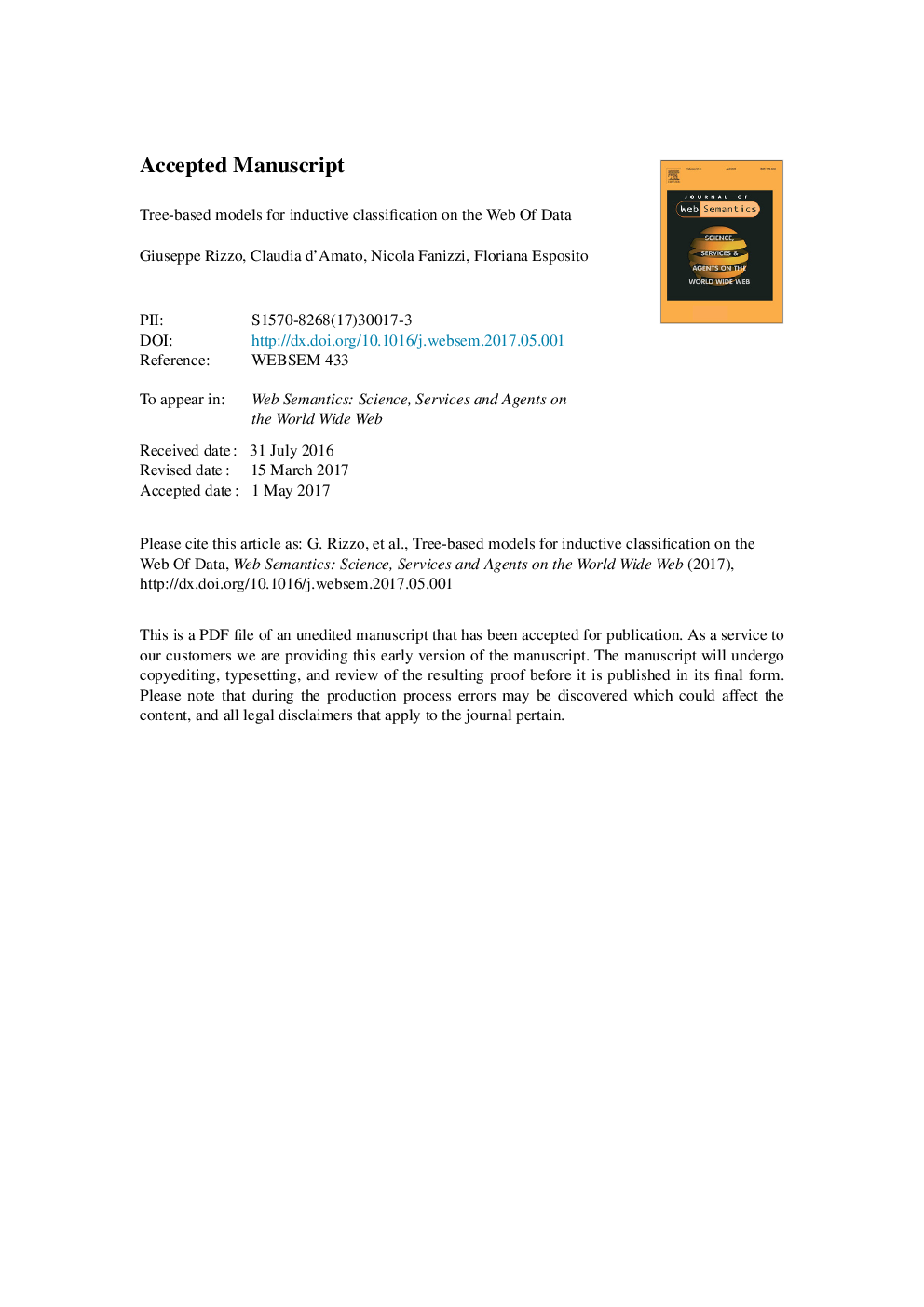| Article ID | Journal | Published Year | Pages | File Type |
|---|---|---|---|---|
| 6950485 | Web Semantics: Science, Services and Agents on the World Wide Web | 2017 | 26 Pages |
Abstract
The Web of Data, which is one of the dimensions of the Semantic Web (SW), represents a tremendous source of information, which motivates the increasing attention to the formalization and application of machine learning methods for solving tasks such as concept learning, link prediction, inductive instance retrieval in this context. However, the Web of Data is also characterized by various forms of uncertainty, owing to its inherent incompleteness (missing information, uneven data distributions) and noise, which may affect open and distributed architectures. In this paper, we focus on the inductive instance retrieval task regarded as a classification problem. The proposed solution is a framework for learning Terminological Decision Trees from examples described in an ontological knowledge base, to be used for performing instance classifications. For the purpose, suitable pruning strategies and a new prediction procedure are proposed. Furthermore, in order to tackle the class-imbalance distribution problem, the framework is extended to ensembles of Terminological Decision Trees called Terminological Random Forests. The proposed framework has been evaluated, in comparative experiments, with the main state of the art solutions grounded on a similar approach, showing that: (1) the employment of the formalized pruning strategies can improve the model predictiveness; (2) Terminological Random Forests outperform the usage of a single Terminological Decision Tree, particularly when the knowledge base is endowed with a large number of concepts and roles; (3) the framework can be exploited for solving related problems, such as predicting the values of given properties with finite ranges.
Related Topics
Physical Sciences and Engineering
Computer Science
Information Systems
Authors
Giuseppe Rizzo, Claudia d'Amato, Nicola Fanizzi, Floriana Esposito,
